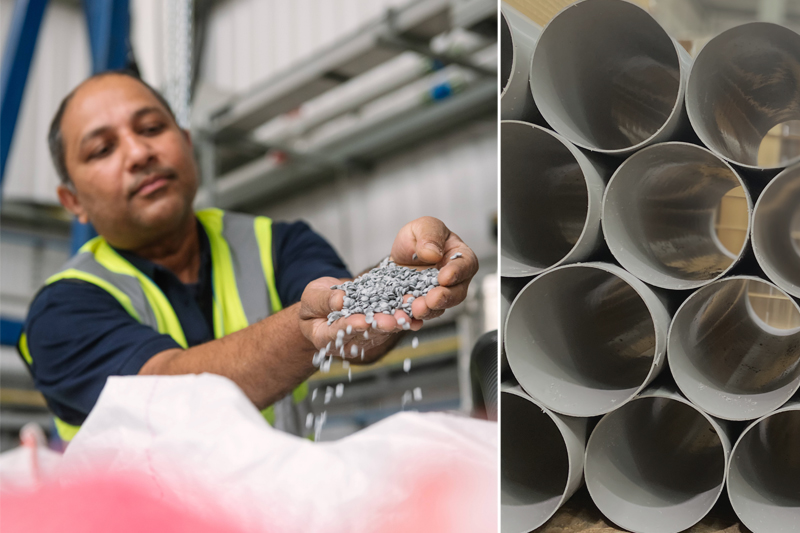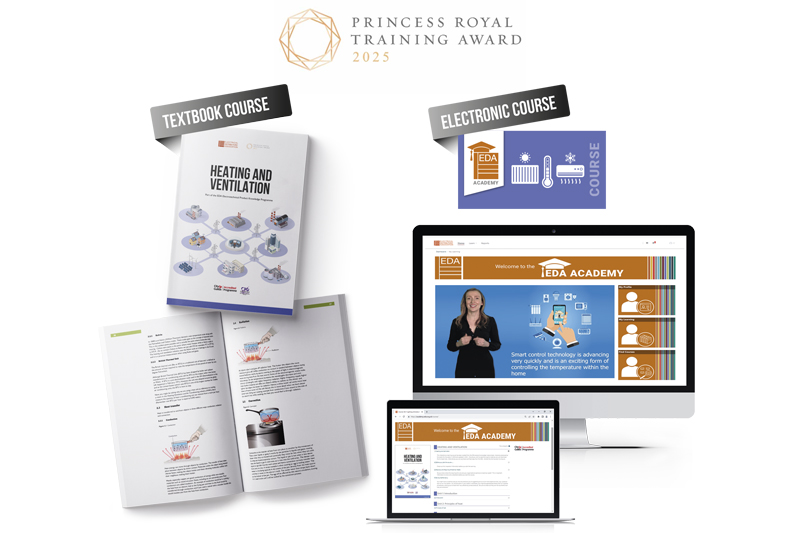As the 2050 net-zero deadline becomes ever nearer there is increasing focus on the whole supply chain when it comes to more sustainable solutions and embodied energy. As a result, there is a rise in electricians asking wholesalers about the environmental credentials of products. Natasha King, Product Manager at Manrose, discusses these developments and how the company is committed to making ventilation sustainable.
Wholesalers are increasingly stocking more sustainable products on their shelves to meet customer demand. According to the latest study by NielsenIQ over half (55%) of UK consumers say living sustainably is important for society and they try to make sustainable choices when they can. Meanwhile, the Building Regulations are also driving a trend towards more sustainable products. Amended Part L (Conservation of Fuel & Power) and Part F (Means of Ventilation) of the Building Regulations published in 2021, required new homes in England to reduce carbon emissions by 30% from June 2022. The new Future Homes Standard looks set to reduce carbon emission by a further 75-80% for new homes built from 2025. As a result of these trends, electricians are looking for more sustainable products when they visit wholesalers as the whole supply chain comes under scrutiny. In response manufacturers are taking the subject seriously and working to provide sustainable solutions.
At Manrose the company is committed to making ventilation more sustainable and is undergoing a manufacturing transformation by moving from using virgin to recycled plastic. Improving sustainability is its main aim through continuously improving its processes to reduce waste throughout its products’ lifecycle and significantly increasing the use of recycled plastic from the circular economy in manufacturing its products.
Targets
To show its commitment to a net-zero carbon future, Manrose has set itself sustainability targets, each geared towards achieving significant improvements by the end of FY2025, which will significantly cut carbon emissions. The company has transformed its manufacturing to reduce carbon by investing in R&D and manufacturing technology to develop ventilation products from recycled sources with 90% of the plastic used in its facilities to be from recycled sources by the end of FY2025, without compromising on quality or reliability. By investing in new, more efficient plant within its facilities, is also reducing the embodied carbon on the components it moulds. For example, an investment in a new injection moulding machine at its Reading site is 30% more energy efficient than the previous generation.
Transformation
The transformation from virgin to recycled plastic was a huge change for Manrose and a true innovation, marking a step-change in ventilation manufacturing. This involved defining new processes following significant R&D, this included extensive material and product trials and testing, CFD analysis, FEA analysis, and FMEA analysis. There was also investment in specialist manufacturing equipment and extrusion capability to increase ducting output and optimise PVC material usage.
Changing from using virgin plastic and moving to recycled sources required changes throughout the manufacturing process. This included a tooling redesign for the moulds. Tooling changes needed to ensure the impact and tensile strengths were retained and the material flowed into the moulds consistently, to ensure Manrose’s renowned reliability. The investment in specialist manufacturing equipment allowed Manrose to produce its ventilation products without affecting their function or performance.
The move to using recycled material was the next step for Manrose since previously the company had reduced its single-use plastic waste and produced ductwork from recycled plastic. But this latest innovation moves to the core product, ventilation, learning to work with recycled material, developing and manufacturing a robust product performing to the same high standards as those made from virgin material, meeting safety standards.

Product trends
So, what do these changes mean for wholesalers? As we approach 2025, there is set to be a further shift to more energy efficient ventilation, so it is wise for wholesalers to make the move to stock this option now. Manrose’s low watt ventilation products are energy efficient, therefore reducing energy usage. By 2025, 70% of Manrose’s sales will be in this category.
Wholesalers will also witness a swing towards ventilation products manufactured from recycled materials rather than virgin plastic. Manrose has already manufactured over 500,000 complete ventilation units where chassis and facias are produced from 100% recycled ABS. Manrose’s customers have always known the company for its reliability and now it is helping make ventilation more sustainable for them too.
Another change for wholesalers will be a move from stocking white to grey ducting made from recycled material. Manrose’s grey PVC ducting is made from 100% recycled PVC window frames that have been diverted from landfill. Meanwhile, plastics extracted from old fridges are used to create Manrose’s ducting components.
Saving carbon
Choosing low watt ventilation products can reduce a building’s carbon emissions but the next step after energy efficiency is to look at embodied energy. Wholesalers also need to consider the embodied carbon of products too. Embodied carbon is the carbon footprint of a product (inclusive of all the components/materials it contains) measured in kg CO2e. There is currently no legal definition of what it comprises, but this will change and wholesalers need to be aware of it now.
Another area to consider regarding reducing carbon is the use of recycled material. Not only does recycled plastic prevent the use of virgin materials, but it also has a lower embodied carbon, this can reduce embodied carbon by a third.
With the 2050 net-zero deadline approaching fast, now is the time for wholesalers to ensure they are up-to-date with the latest sustainable products so they have the ventilation customers want. Despite the Government appearing to slow down on its route to net-zero, the UK still has the legal target to meet. Wholesalers are a vital part of the supply chain and those that are ahead of the game will help meet the net-zero target and also benefit from customer demand.
For more information, click here





